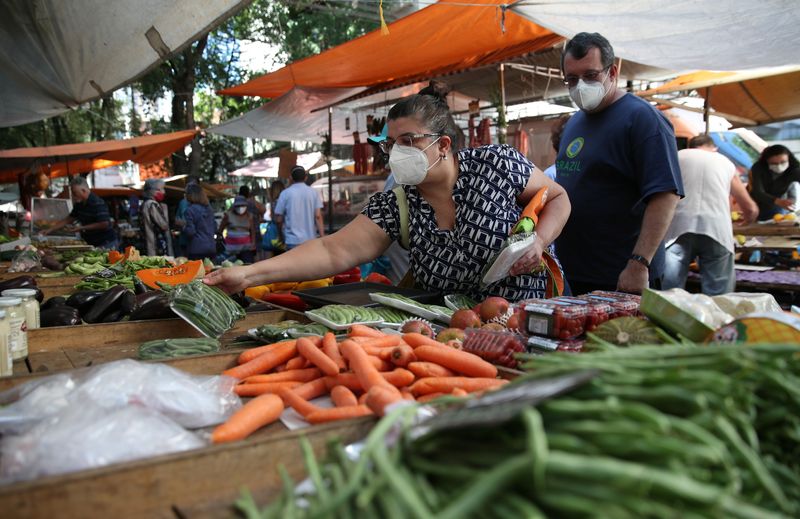SAO PAULO (Reuters) -Brazil’s consumer prices rose slightly less than expected in January, but the latest data is unlikely to give the central bank room for monetary easing in the short term despite President Luiz Inacio Lula da Silva’s calls for lower rates.
Prices as measured by the benchmark IPCA index were up 0.53% last month, slowing down from December and below market forecasts of 0.57%, government statistics agency IBGE said on Thursday.
On an annual basis, inflation reached 5.77% in January, down from an increase of 5.79% in the previous month and also below market estimates of 5.8% – although still above the central bank’s target for this year.
The fresh figures come amid a feud between Lula and the central bank chief over high interest rates, which stand at a six-year high of 13.75% after aggressive monetary tightening aimed at taming high inflation.
Lula has said the benchmark rate was far too high given the country’s inflation trajectory, causing an unnecessary drag on growth, while central bank Governor Roberto Campos Neto defended the institution’s autonomy to pursue inflation targets.
With the feud and fiscal risks, economists see little room for rate cuts at the moment despite the emerging downward inflationary trend.
“The relatively benign picture at the start of the year won’t change the central bank’s relatively cautious policy stance anytime soon,” said Andres Abadia, chief economist for Latin America at Pantheon Macroeconomics.
“What really matters right now is the elevated fiscal uncertainty, and the political/policy noise, including President Lula’s criticism of the high level of interest rates.”
The central bank has kept rates on hold since September after an aggressive tightening cycle, in which policymakers hiked the benchmark rate from a record low of 2% in March 2021.
Still, the 2022 full-year inflation result missed both the central bank’s annual target of 3.5% and the top 5% of its tolerance band, and in 2023 it faces an even tighter target of 3.25% plus or minus 1.5 percentage point.
“With inflation above target, fiscal risks persisting and the central bank’s independence being challenged, interest rate cuts are unlikely until the fourth quarter at the earliest,” said Capital Economics’ senior emerging markets economist Jason Tuvey.
In January, IBGE said, food and beverages had the biggest impact on Brazilian inflation, followed by higher transportation costs. Apparel prices fell from the previous month, it added.
(Reporting by Gabriel Araujo; Editing by Steven Grattan)
